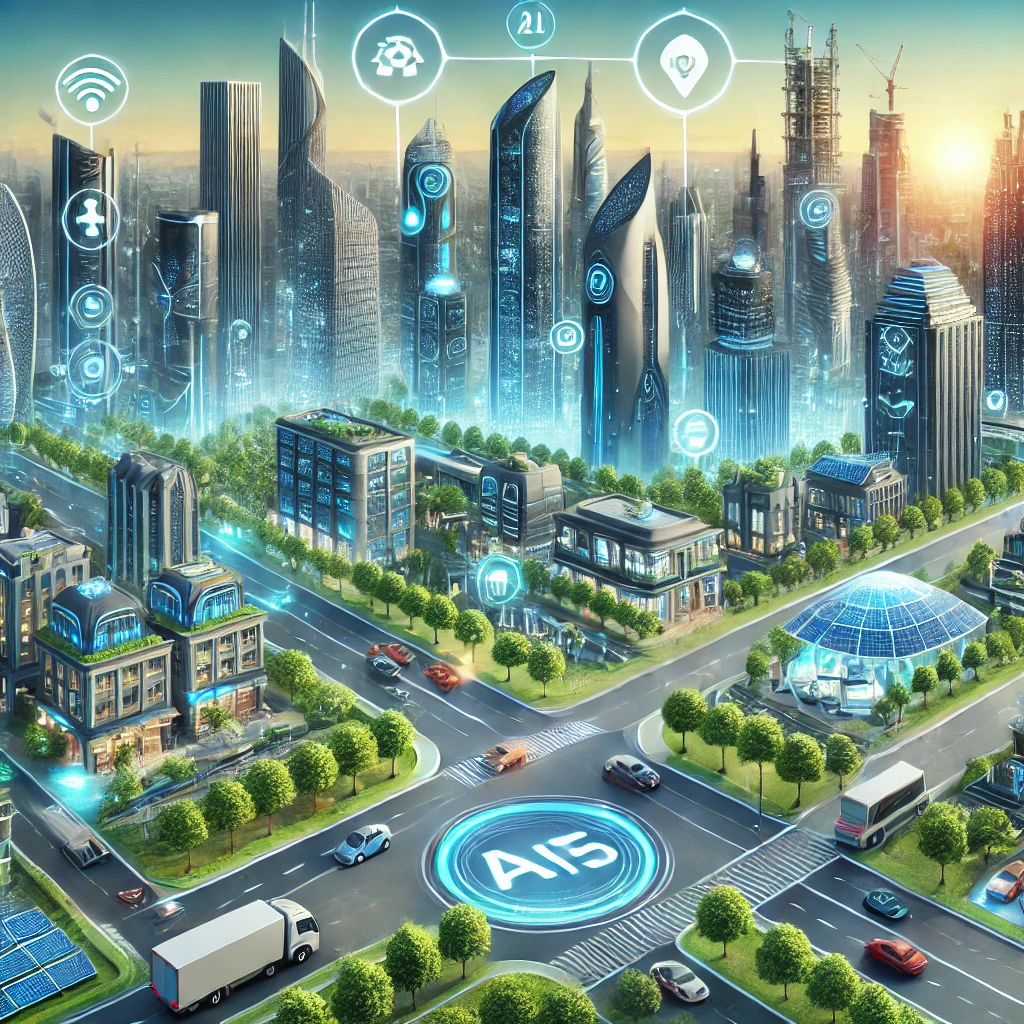
Introduction: Smart cities are transforming urban life by integrating advanced technology, data analytics, and sustainable solutions. By 2025, smart cities are becoming more efficient, eco-friendly, and interconnected, improving the quality of life for residents worldwide.
1. AI and IoT in Smart City Infrastructure The combination of artificial intelligence (AI) and the Internet of Things (IoT) is optimizing urban infrastructure. Smart traffic systems, AI-driven waste management, and real-time monitoring enhance city management efficiency.
2. Renewable Energy Solutions in Smart Cities Sustainability is a core focus of smart cities in 2025. Solar panels, wind energy, and smart grids ensure efficient energy distribution, reducing carbon footprints and enhancing energy conservation efforts.
3. Smart Public Transportation Systems Cities are integrating AI-driven public transportation systems that use real-time data to optimize routes, minimize congestion, and improve commuter experiences. Autonomous buses and electric vehicle (EV) charging stations are becoming commonplace.
4. AI in Urban Security and Safety Smart cities leverage AI-powered surveillance, predictive crime analytics, and facial recognition technology to enhance public safety. AI-driven emergency response systems improve disaster management efficiency.
5. The Rise of 5G and Smart Connectivity With 5G technology, smart cities experience faster internet speeds and improved connectivity. This enhances the efficiency of IoT devices, making smart homes, businesses, and public services more seamless.
6. Smart Waste Management Systems AI-driven waste management systems optimize garbage collection, recycling, and disposal. Sensors in bins detect fill levels, ensuring timely pickups and reducing environmental waste.
7. Water Conservation and Management Smart water grids, leak detection systems, and AI-powered irrigation solutions help cities manage water resources efficiently. Real-time monitoring minimizes waste and promotes sustainability.
8. Smart Healthcare and Telemedicine Healthcare facilities in smart cities integrate AI-driven diagnostics, remote patient monitoring, and telemedicine, improving healthcare accessibility and response times.
9. Green Spaces and Urban Planning Smart cities prioritize green spaces, vertical gardens, and eco-friendly architecture. AI-driven planning tools optimize land use and urban development for a healthier environment.
10. The Future of Smart Cities Beyond 2025 As AI, IoT, and sustainability continue to advance, smart cities will evolve further, enhancing efficiency, sustainability, and overall urban living.
Conclusion: The future of smart cities in 2025 is shaping a more connected and sustainable world. Embracing innovation will redefine urban living, making cities smarter and more efficient for future generations.